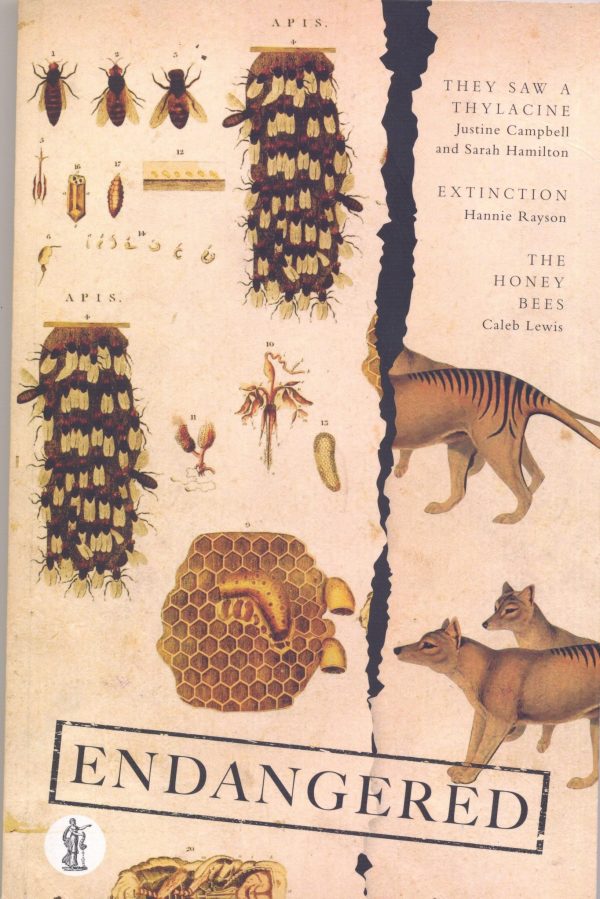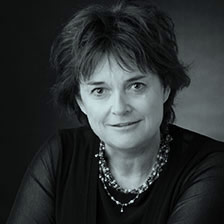This Resource is for Mainstream English Students studying the play ‘Extinction’ by Hannie Rayson in the Victorian Curriculum.

Analysing Characters in a Drama
When characters are portrayed by actors, characterisation depends on what is conveyed through visuals and sound as much as on the words in their dialogue. In this way playwrights can directly portray the many ways in which people communicate without using words. They can also use the aural qualities of speech to enhance and sometimes complicate the literal meaning of the character’s dialogue.
Characters and Stage Directions
When analysing a play script it is important to remember that the play is meant to be performed in front of an audience. While students are reading the play, take particular notice of the stage directions that can indicate essential visual elements of character, such as costumes, facial expressions and body movements. Pay attention to how the Director Hannie Rayson wants a word or line to be delivered by the actor, perhaps indicating an emotion such as anger or empathy and the vocal tone. The tone in the character’s language can link with the way the Director wants to convey information about the characters and how these words convey ideas and values to the audience.

Characters and Relationships
In the play ‘Extinction’ the physical interactions with other characters is relevant to the themes and values Hannie Rayson wants the audience to connect with and reflect on their own values. Within the structure of the play all characters have equally important parts. Note how the Director wants to reinforce relatonships through thoughts and feelings and differences of opinions. The play presents the values of characters through their intense relationships with each other and the conflicts that arise between them. In ‘Extinction’ several characters compromise their core values in order to achieve their goals and the play highlights their difficult choices linking the tension between economic and environmental values that Hannie Rayson wants to endorse. It is Piper who says “We all exist in relationship with one another” and the concept of how vulnerable all life on earth is conveyed through the relationships of the characters in the play. Hannie Rayson wants to draw attention to how we all exist in relationship with other living creatures. She also wants the audience to recognise that human beings can be vulnerable and at times influenced by others in negative ways.
A Brief Synopsis of the Characters from the play ‘Extinction’:
- Piper Ross
Dr Piper Ross is a 30-year-old American zoologist on secondment from the San Diego Zoo. Piper works at CAPE and volunteers at a wildlife rescue centre in the Cape Otway rainforest run by veterinarian and boyfriend Andy Dixon. Piper views the Otways as “paradise” (p.103) and values the restorative qualities of the Australian bush where her time in the wilderness allows her the chance to “renew” (p.78) herself to experience “awe” and “to feel reverence” (p.78).
An idealist who believes that all species are “worth saving” (p.83). Piper is optimistic that “everyone transforming the way they live” (p.113) will be what saves the planet from destructive forces. As a woman who values all life and considers it the role of every member of the human species to safeguard the lives of all animals, her anger at Andy when he euthanises the wounded tiger quoll is palpable.
She is emotional and at times her judgement can be clouded. While she is in love with Andy, she is unsure about his commitment to her which leads to her compromising her beliefs and values by having a sexual relationship with Harry Jewell and accepting a job from him. She tells Harry that she wants to be a person who “faces up to things” (p.116) and ultimately, she is able to make a strong commitment to stand by her own words “if you loved someone and they were dying, you would do everything you could to help them (p.90). This shows her courage and compassion. It also enables her to redeem herself for the abandonment of her principles and her earlier betrayal of Andy.
- Andy Dixon
Andy Dixon is the 35-year-old brother of Heather Dixon-Brown, in a relationship with Piper Ross, a vet and a committed conservationist, who is suffering from GSS a rare, hereditary, fatal neurodegenerative disease. Andy, like the quoll, is a symbol of imminent extinction. Rayson’s portrayal of Andy as the innocent victim of circumstances beyond his control reinforces a thematic link between him and the quoll.
Until the end of the play, only he and Heather know about his illness. His seemingly heartless euthanising of the dying quoll reflects his embittered attitude to his own inevitable death. He is unwilling to reveal the truth about his condition to Piper knowing she is the sort of person to “stay up all night looking after a bloody possum” (p.86) and rejects her desire to “marry … have babies and live in a house together” (p.104) seems to be part of his desire to spare her the pain of watching him degenerate and die.
He is an idealist who is passionate about the natural world and shows a strong commitment to environment values by condemning mining and even disapproves of using computers to run a diary farm (p.82). Yet he is also “stubborn” and “rude” (p.106) when he disagrees or dislikes people. This is true about his views of Heather’s acceptance of funds from Harry Jewell as “environmental vandalism” (p.119).
Ultimately, Andy’s cynical worldview is challenged by the appearance of a live tiger quoll at the play’s conclusion. In highlighting the fragility of life, Rayson reminds audiences not to take our survival, either as individuals or as a species for granted.
- Heather Dixon-Brown
The 50-year-old director of CAPE, Heather Dixon-Brown, is the sister of Andy, boss of Piper, an ecologist in the process of a divorce and is acutely aware of her responsibility to ensure funding for the institute and the 25 people on staff at the institute who “rely on [her] to come up with their salaries” (p.79). At first, she is portrayed to be a morally upright character, pragmatic and intelligent, aware of the issues that conservation faces with limited funding available.
Heather’s desire to assist endangered species with her Dixon-Brown Index is moderated by a realistic understanding that “You should only invest in those that are going to give you a good return” (p.99). When Harry Jewell arrives on the scene, she compromises her environmental principles and her professional ethics by accepting his “dirty money” (p.100) and by sleeping with him. She also uses spite and jealousy to try and get rid of Piper as a rival for Harry’s affections. Rayson shows a stereotypical representation of an older woman who regards her own old age a disadvantage against the younger, Piper that Harry finds attractive, simply because he “prefer[s] a younger woman” (p.129).
- Harry Jewell
A 45-year-old MD of Powerhouse Mining, Harry Jewell is recently divorced and has returned to the Otways in search of comfort. Introduced by Rayson at the start of the play as a sensitive, charming and responsible character who is trying to save a quoll he has accidently hit, as the play progresses the audience see there are hidden depths and complexities to his character. Andy calls him “Mr Evil” (p.80) and as such Harry has little sympathy for the farmers whose land he will destroy in his search for coal. As a ruthless and heartless businessman, he is unlike the tender-hearted quoll rescuer in the opening scene of the play.
The audience and Piper struggle to come to terms with a man whose money enables him to live “a big life” (p.113) but who also seeks to use his fortune to do what he can to save the tiger quoll from extinction. He recognises the harm the coal industry has done to the environment but also contends that “if you want to make a difference to the environment you have to be rich” (p.113).
Harry is also a shrewd operator, convincing Heather to accept funding from a coalmining company and uses his sexual power to exploit both Heather and Piper for his own enjoyment. While he complains about his wife’s infidelity, he seems untroubled by his own duplicity.
Through the construction of Harry’s character, Rayson makes a strong connection with the notion of extinction. As a miner of coal, not only will Harry further erode the habitat of endangered species, but coal-fired energy will increase greenhouse gases, contributing to the unsustainability of life on earth (and hence extinction).
